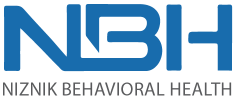5 Tips to Start the Conversation about Teen Substance Abuse
Every parent worries whether their teen will make good decisions when it comes to drugs and alcohol and research shows that those fears are not unfounded. According to the most recent Youth Risk Behavior Surveillance System (YRBSS) by the CDC, at least 29.8% of high school students admit to current alcohol use and about 1 in 7 students have misused prescription opioids.
Substance abuse in teens isn’t always easy to identify, which is why it is important to begin the conversation about alcohol and drug use early. However, the conversation about substance abuse doesn’t have to be forced or difficult. You can start simply by:
Find opportunities during everyday family time.
Make a regular habit of discussing your teen’s day during family dinners, breakfast, and weekend activities. When you know about what’s happening in your teen’s life, you can ask follow-up questions more easily and try to determine what your teen already knows about drug and alcohol use.
Similarly, don’t be afraid to talk to your teen about news stories regarding drug use as well as family situations that may arise.
Using the media (movies, TV shows, music, etc) to start talking.
Pay attention to news and pop culture stories that your teen might be aware of as well as any popular movies and TV show characters. Your teen might already have ideas about drugs and alcohol from media, music, and celebrities. Be sure to use these opportunities to engage your teen in thoughtful discussions.
Keeping an open channel of communication.
Be sure to let your teen know that you are always available and willing to talk about difficult questions and situations. Then, let your teen come to you with any problems. If your teen is struggling with substance abuse or feeling pressured to use drugs or alcohol, they might be relieved to have a parent who is willing to speak honestly with them.
Addressing concerning behavior, not ignoring it.
If you begin to suspect your teen is struggling with substance abuse, it’s okay to address the problem. Express your concerns without being aggressive or confrontational. SAMHSA advises parents on what warning signs to look out for if you believe your teen has been drinking.
Making sure you’re prepared.
Educate yourself on substance abuse disorders and be prepared to accept that your teen may be struggling. By keeping yourself informed, you’ll be better equipped to help your teen.
If your teen is struggling with alcohol or substance abuse, you may find that rehabilitative treatment offers the best chance at recovery. Niznik Behavioral Health offers personalized treatment regimens to provide the most effective care for teens struggling with substance abuse, including assistance with aftercare planning to ensure continued sober living.

